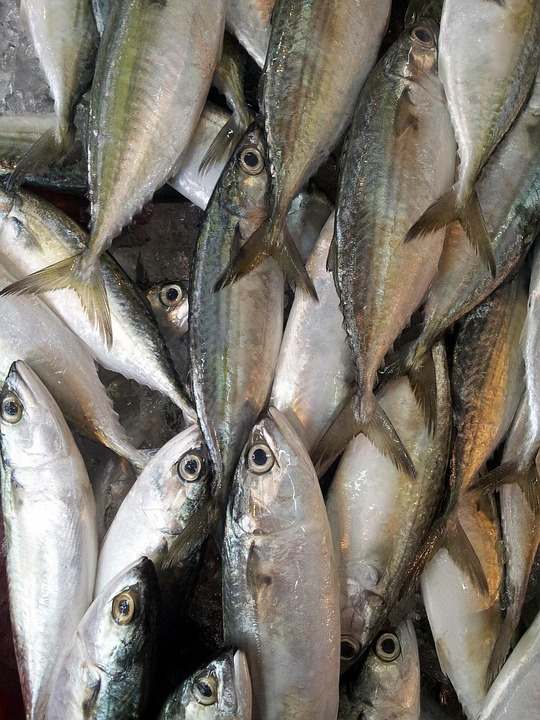Introduction
The seafood industry is a crucial sector that provides a significant source of protein for billions of people around the world. With the increasing demand for seafood products, there is a growing concern about the traceability and transparency of the supply chain. In recent years, blockchain technology has emerged as a powerful tool that can help seafood companies enhance traceability and ensure the authenticity of their products.
What is Blockchain?
Blockchain is a decentralized, distributed ledger technology that enables secure and transparent transactions. Each transaction is recorded in a block, which is linked to the previous block, forming a chain of blocks. This technology ensures that data cannot be altered or tampered with, providing a high level of security and trust.
Top 10 Seafood Companies Leveraging Blockchain for Traceability
1. Bumble Bee Foods
Bumble Bee Foods is a leading seafood company that has implemented blockchain technology to track the journey of its products from the ocean to the consumer’s plate. By scanning a QR code on the packaging, consumers can access information about the fish’s origin, catch date, and processing details.
2. Thai Union Group
Thai Union Group, one of the world’s largest seafood companies, has partnered with blockchain technology providers to enhance traceability in its supply chain. By leveraging blockchain, Thai Union can track the movement of its products and ensure compliance with sustainability standards.
3. Mowi ASA
Mowi ASA, a global leader in salmon farming, has adopted blockchain technology to provide transparency and traceability to its customers. Through blockchain, Mowi can verify the authenticity of its products and provide detailed information about the fish’s journey from the farm to the table.
4. Clearwater Seafoods
Clearwater Seafoods, a Canadian seafood company, has integrated blockchain technology into its supply chain to improve traceability and combat seafood fraud. By using blockchain, Clearwater can track the provenance of its products and ensure that they meet the highest quality standards.
5. Marine Harvest
Marine Harvest, a Norwegian aquaculture company, has implemented blockchain technology to enhance transparency and traceability in its salmon supply chain. By recording key information on the blockchain, Marine Harvest can provide consumers with real-time data about the fish’s origin and processing.
6. High Liner Foods
High Liner Foods, a North American seafood company, has embraced blockchain technology to improve traceability and authenticity in its supply chain. By utilizing blockchain, High Liner can verify the source of its products and ensure that they are sustainably sourced.
7. Trident Seafoods
Trident Seafoods, a US-based seafood company, has adopted blockchain technology to enhance traceability and ensure the integrity of its products. Through blockchain, Trident can track the movement of its products and provide consumers with detailed information about the fish’s journey.
8. Cargill Aqua Nutrition
Cargill Aqua Nutrition, a global aquafeed producer, has implemented blockchain technology to enhance transparency and traceability in its supply chain. By utilizing blockchain, Cargill can track the sourcing of its raw materials and ensure compliance with sustainability standards.
9. Nissui
Nissui, a Japanese seafood company, has partnered with blockchain technology providers to improve traceability and authenticity in its supply chain. By leveraging blockchain, Nissui can track the provenance of its products and provide consumers with detailed information about the fish’s journey.
10. Cooke Aquaculture
Cooke Aquaculture, a Canadian aquaculture company, has embraced blockchain technology to enhance traceability and transparency in its supply chain. By recording key information on the blockchain, Cooke can ensure the authenticity of its products and provide consumers with real-time data about the fish’s origin.
Benefits of Blockchain for Seafood Companies
Blockchain technology offers several benefits for seafood companies, including:
– Enhanced traceability: Blockchain enables seafood companies to track the journey of their products from the source to the consumer, providing transparency and authenticity.
– Improved quality control: By recording key information on the blockchain, seafood companies can ensure that their products meet the highest quality standards and compliance requirements.
– Increased consumer trust: With blockchain technology, seafood companies can provide consumers with real-time data about the origin and processing of their products, building trust and loyalty.
– Combatting fraud: Blockchain technology helps seafood companies combat seafood fraud by verifying the authenticity of their products and preventing counterfeit products from entering the market.
Conclusion
In conclusion, blockchain technology has the potential to revolutionize the seafood industry by enhancing traceability, transparency, and authenticity in the supply chain. The top 10 seafood companies leveraging blockchain for traceability are leading the way in ensuring the integrity of their products and providing consumers with confidence in the seafood they consume. As blockchain continues to evolve, we can expect more seafood companies to adopt this technology to meet the growing demand for transparency and sustainability in the industry.




